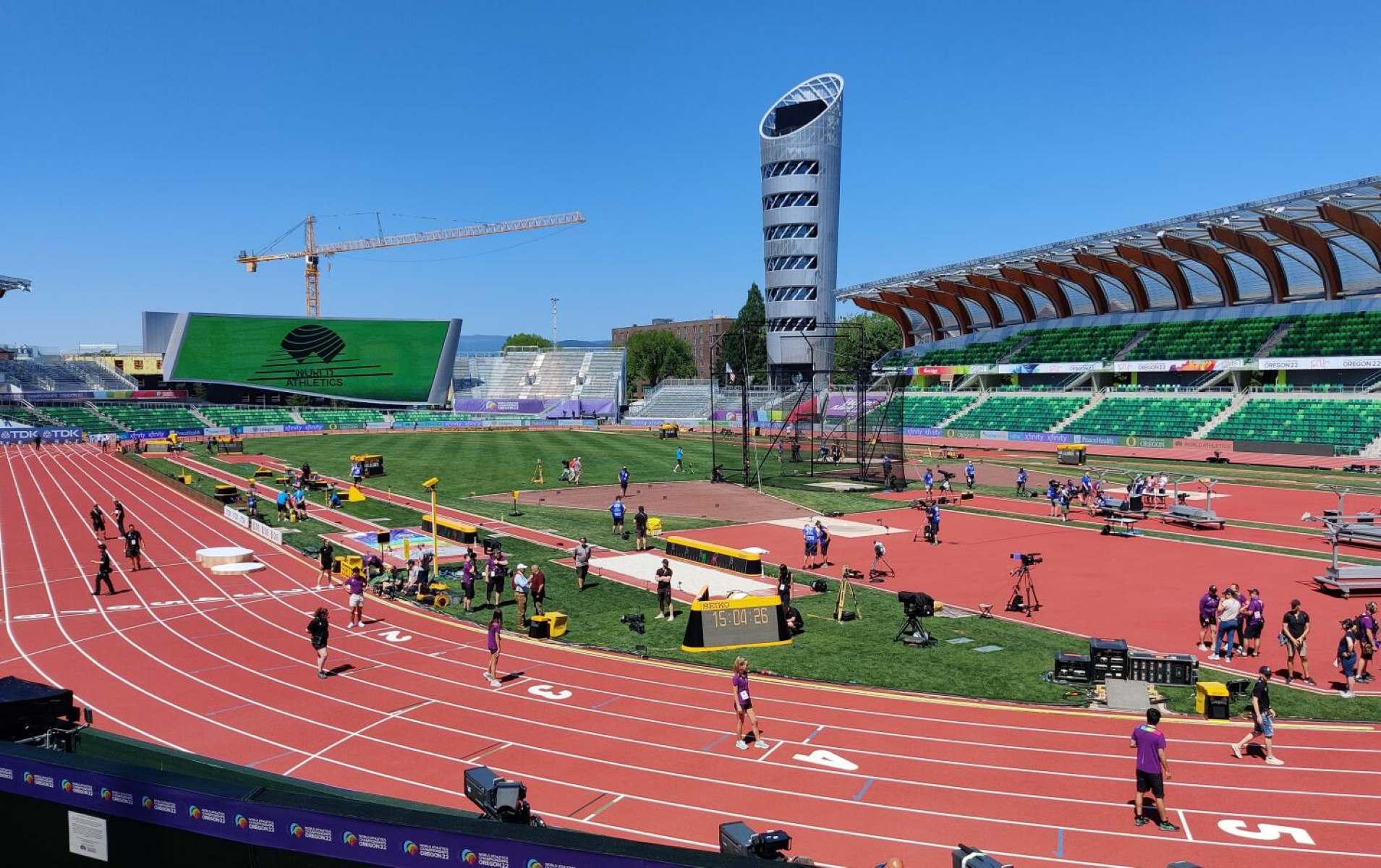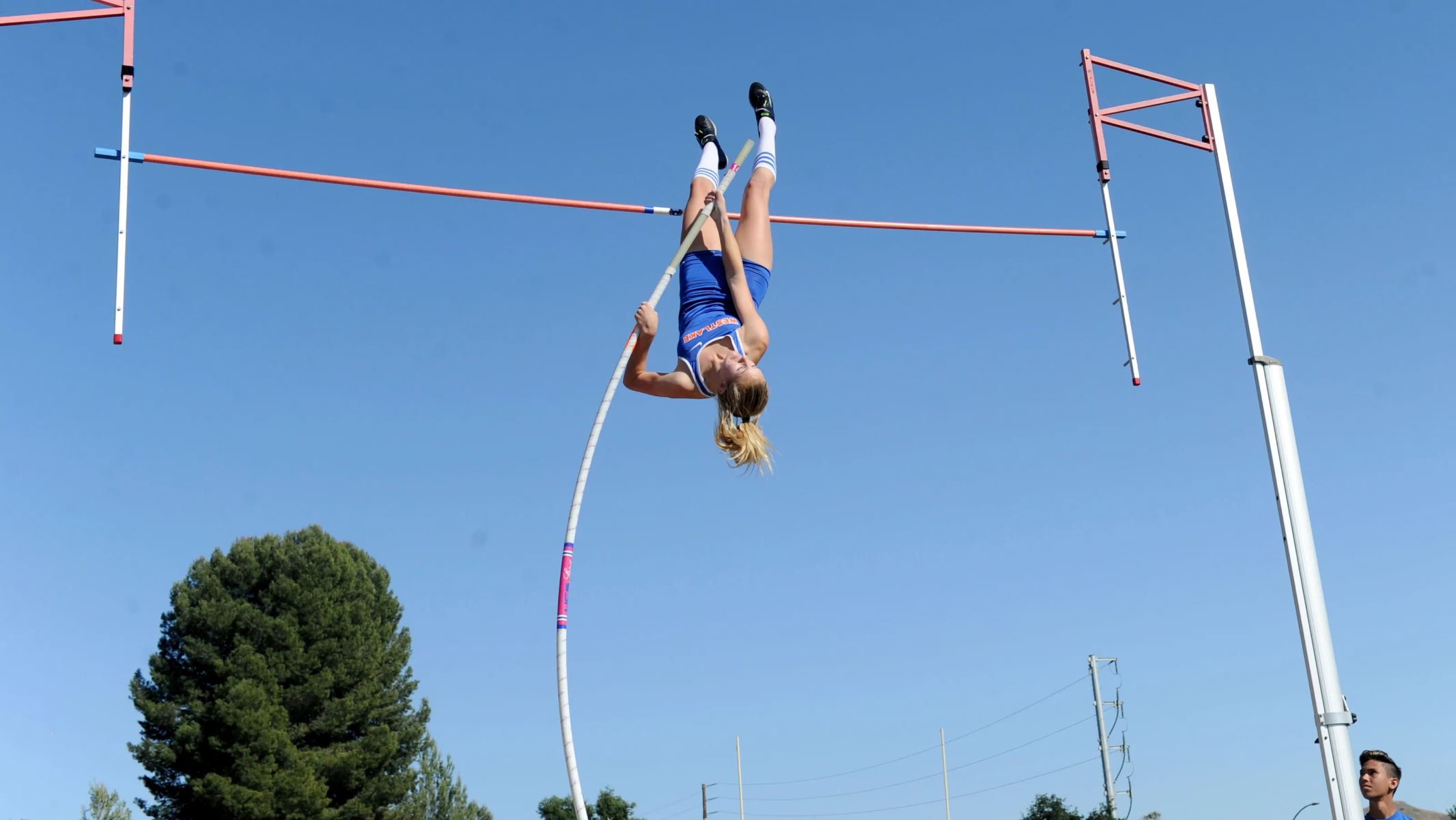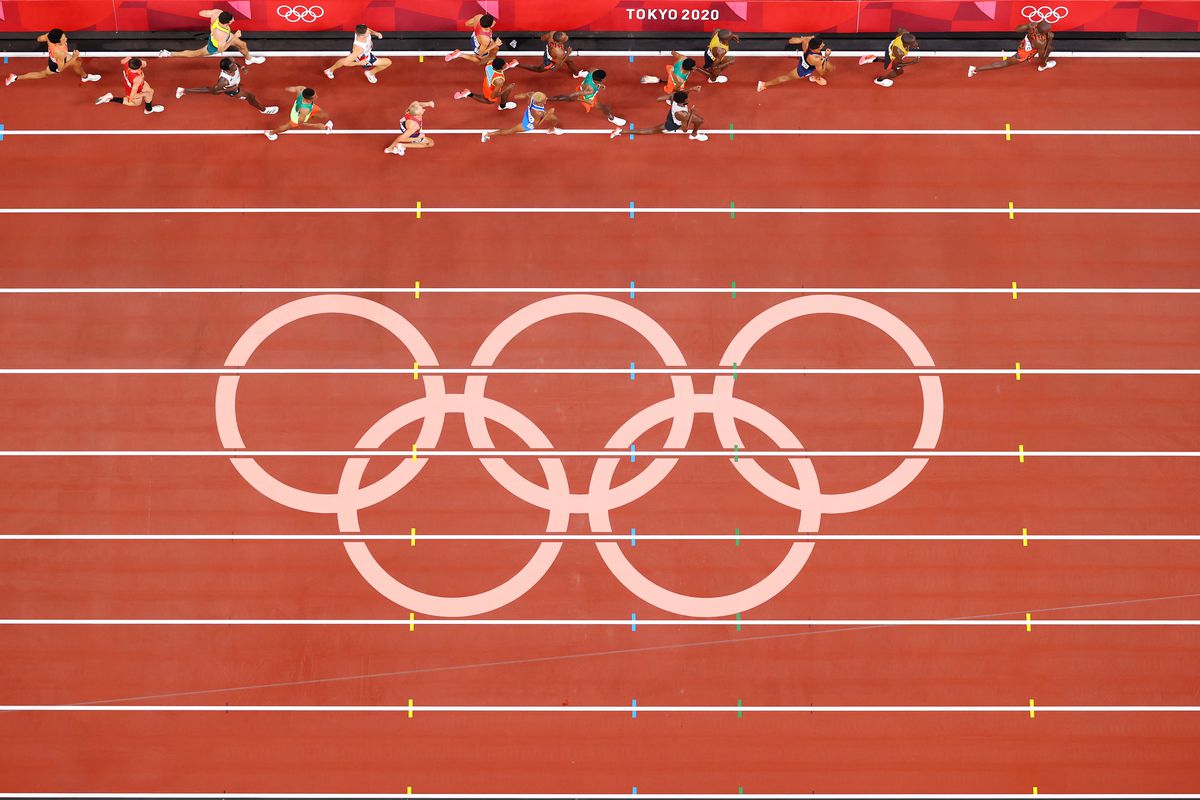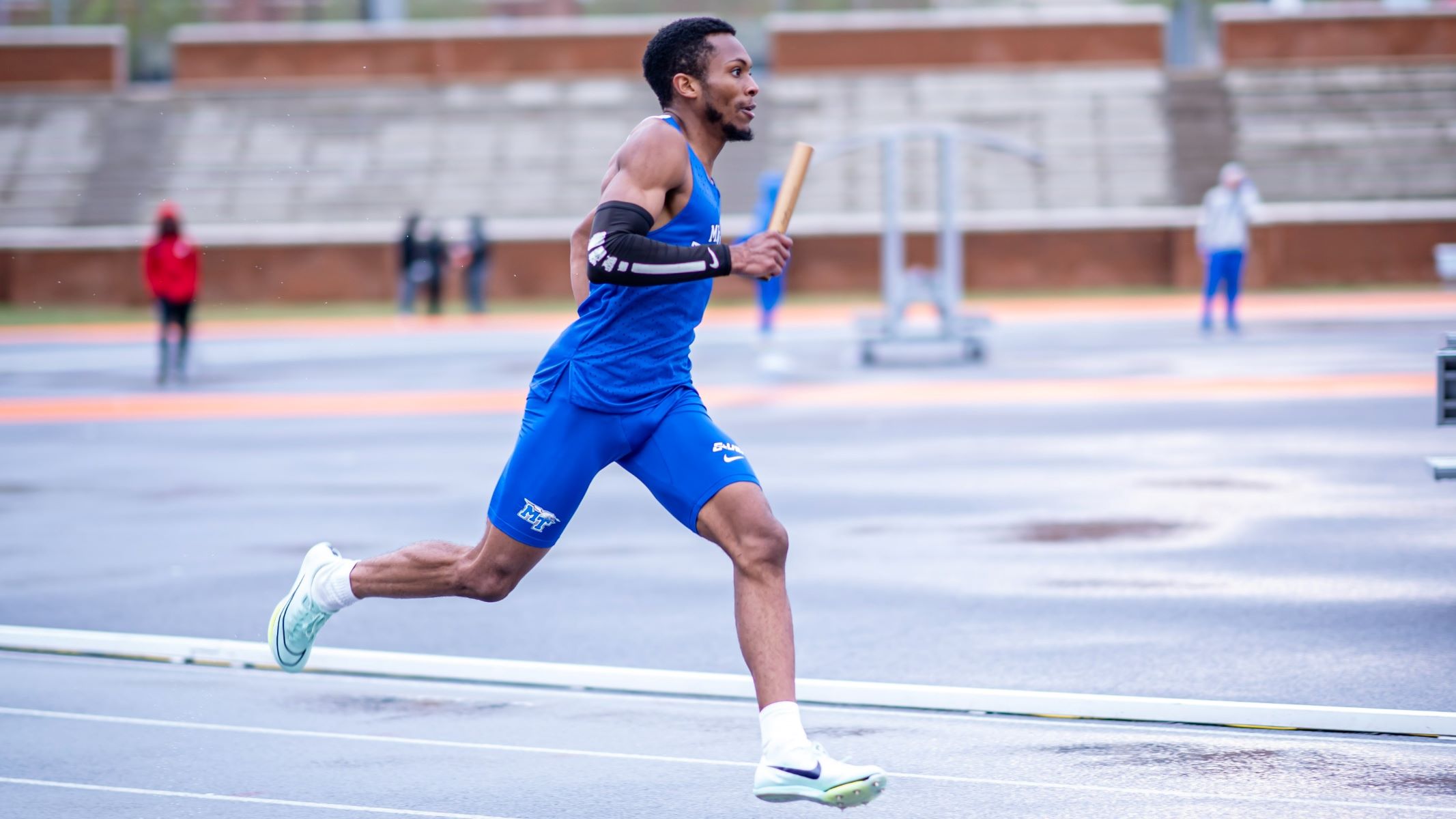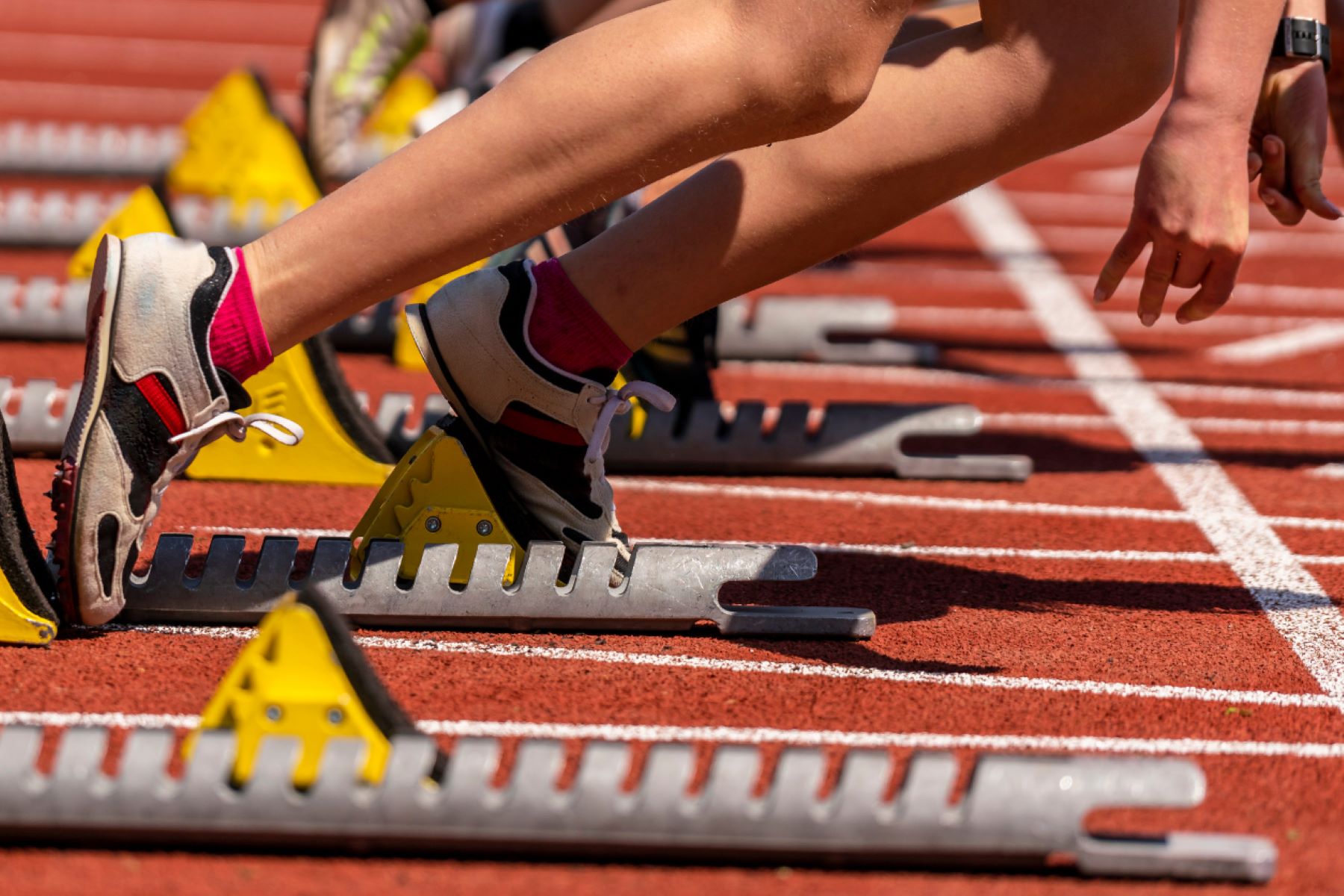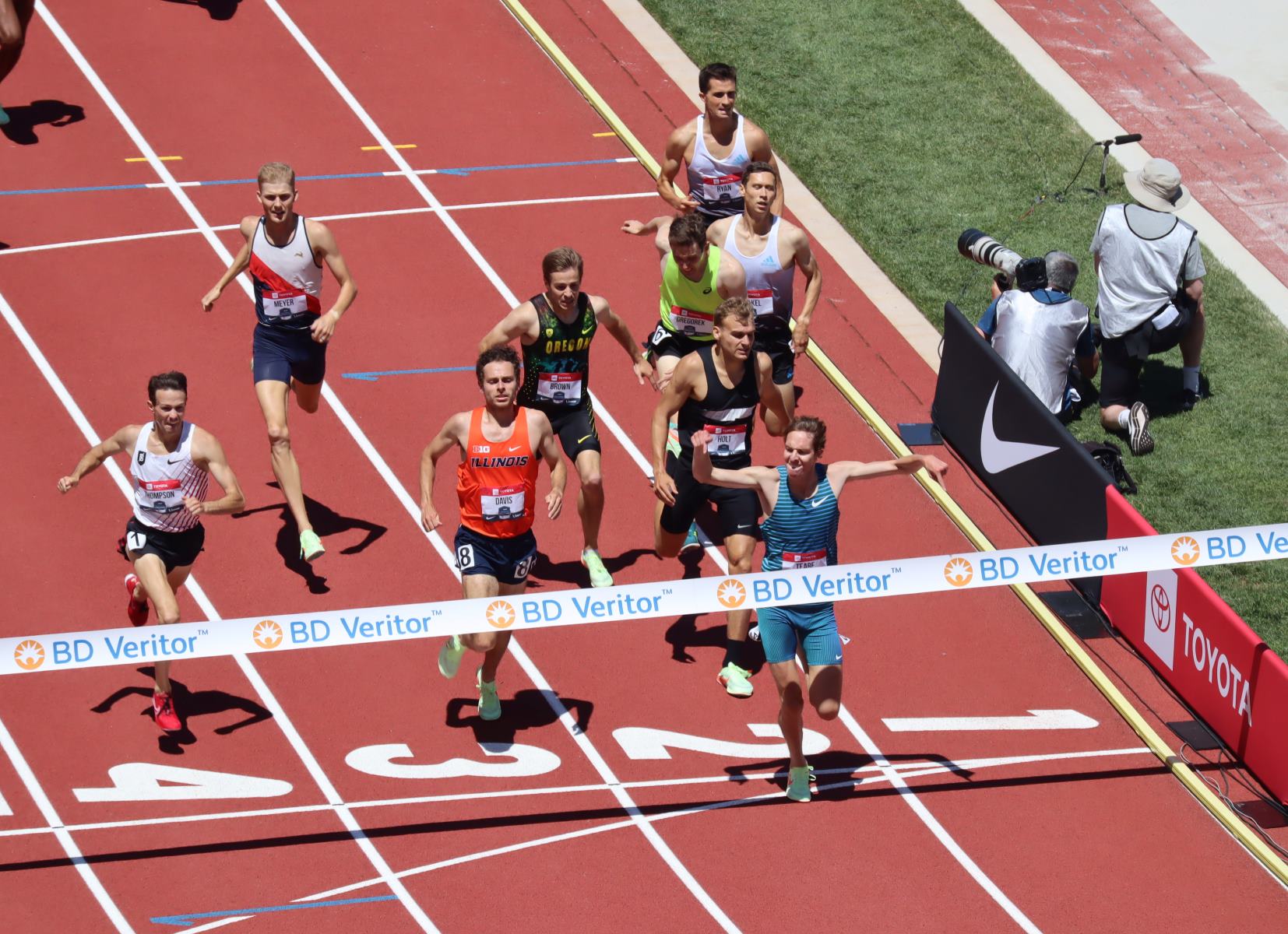Home>Misc>Featured>Why Was Russia’s Track And Field Banned From The Olympics?
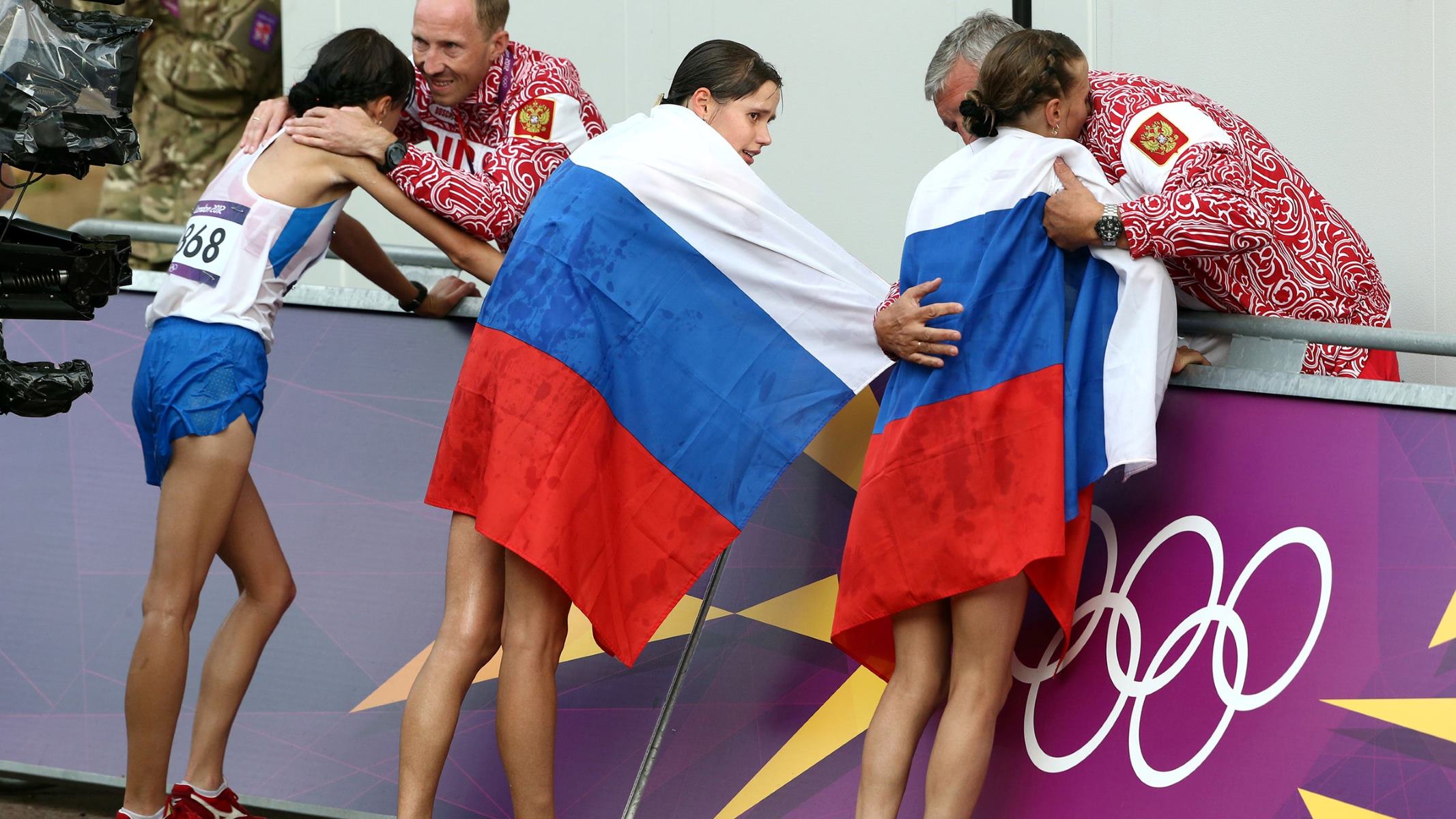

Featured
Why Was Russia’s Track And Field Banned From The Olympics?
Modified: October 26, 2023
Discover why Russia's track and field team was banned from the Olympics in this featured article. Gain insight into the controversies and consequences behind this unprecedented decision.
Introduction
The world of athletics is no stranger to controversy, but in recent years, one particular scandal has rocked the track and field community. Russia, a powerhouse in the sport, has been at the center of a doping scandal that has led to significant repercussions. The country’s track and field team has been banned from participating in the Olympic Games, sending shockwaves throughout the sports world and prompting widespread discussion about the integrity of the sport.
Russia, known for its strong tradition in track and field, has produced numerous top-level athletes who have excelled on the global stage. However, allegations of systematic doping practices within the country have tainted its reputation and called into question the legitimacy of its athletes’ performances. The severity of the issue necessitated swift and decisive action from international regulatory bodies to uphold the integrity of the sport and protect the rights of clean athletes.
This article aims to delve into the reasons behind Russia’s track and field ban from the Olympic Games, exploring the details of the doping scandal, the investigations carried out, and the subsequent decisions made by the relevant authorities. Additionally, we will examine the implications of this ban and the ongoing efforts to restore Russia’s eligibility to participate in future events.
Background on Russia’s Track and Field Team
Russia has a long and storied history in track and field, with the country consistently producing world-class athletes in various disciplines. Through the years, Russian athletes have achieved remarkable success, earning numerous medals and setting records in prestigious competitions such as the Olympic Games and the World Athletics Championships.
The development of Russia’s track and field team can be attributed to its robust athletic infrastructure and training programs. The country places great emphasis on sports, with significant investments made in coaching, facilities, and athlete development. As a result, Russia has become a dominant force in the field of track and field, consistently ranking among the top nations in terms of medal hauls and overall performance.
Russian athletes, especially in track and field, have long been celebrated as heroes in their country, serving as role models for aspiring athletes and embodying the nation’s competitive spirit. With a rich sporting heritage and a deep passion for athletics, it is no surprise that Russia has emerged as a powerhouse in the sport.
However, despite the successes enjoyed by Russian track and field athletes, doubts and suspicions have lingered over the years. Rumors of doping practices within the Russian sports system have persisted, raising concerns about the integrity of their performances. While these allegations were often dismissed due to a lack of concrete evidence, they continued to cast a shadow of doubt over the country’s athletic achievements.
It is against this backdrop of both admiration and skepticism that the doping scandal involving Russia’s track and field team unfolded. The revelations that emerged would shake the very foundation of the sport and tarnish the reputation of the country’s athletes, coaches, and sports officials.
The Doping Scandal
The doping scandal that engulfed Russia’s track and field team was a result of a comprehensive investigation conducted by the World Anti-Doping Agency (WADA). The probe, which began in 2014, unearthed evidence of systematic, state-sponsored doping practices within the country’s sports system.
The investigation revealed a widespread and intricate scheme designed to facilitate the use of performance-enhancing drugs by Russian athletes. This included the existence of a state-run doping program, which involved athletes, coaches, and sports officials at various levels. The aim was to gain a competitive advantage in international competitions, including the Olympics, by ensuring that Russian athletes achieved superior results.
One of the key components of the doping scheme was the manipulation of urine samples. Athletes were provided with a cocktail of banned substances, and their tainted urine samples were switched with clean ones during drug tests. This allowed them to evade detection and continue competing at the highest level, bolstering Russia’s reputation as a track and field powerhouse.
In addition to the manipulation of urine samples, the investigation also uncovered evidence of bribery and corruption within Russia’s anti-doping agencies and sports federations. This further reinforced the notion that the doping scandal was not merely the actions of rogue individuals, but rather a complex, orchestrated effort rooted in the country’s sports establishment.
The revelations sent shockwaves throughout the sports world, calling into question the integrity of Russia’s track and field achievements. It also raised concerns about the broader anti-doping system, with critics questioning the effectiveness of the measures in place to detect and deter doping in sports.
The doping scandal not only tarnished the reputation of Russian athletes but also cast doubt on the credibility of the entire sports system in the country. It highlighted a culture of cheating and disregard for fair play, eroding public trust and undermining the values upon which competitive sports are built. The repercussions of the scandal would be far-reaching and would have significant implications for Russia’s track and field team’s future participation in international competitions.
WADA’s Investigation
The World Anti-Doping Agency (WADA) played a crucial role in uncovering the doping scandal that rocked Russia’s track and field team. In 2014, WADA launched a comprehensive investigation into allegations of widespread doping practices within the country’s sports system.
The investigation, led by independent experts, involved extensive interviews, analysis of documents, and the examination of electronic data. The evidence gathered pointed to a state-sponsored doping program that operated with the knowledge and support of Russian sports authorities.
One of the critical pieces of evidence uncovered was the whistleblower testimonies of several Russian athletes, coaches, and anti-doping officials. These insiders provided detailed accounts of the doping practices and the extent to which they were orchestrated at a national level.
Additionally, WADA’s investigation revealed the existence of a separate laboratory, known as the Moscow Anti-Doping Laboratory, where doping control samples were analyzed. The laboratory was found to have engaged in various illegal and unethical practices, including the deliberate destruction of samples and the falsification of documentation.
The damning evidence presented by WADA prompted the agency to issue a scathing report in 2015. The report outlined the extent of the doping scheme and called for immediate action to be taken to address the systemic issues within Russian sports.
Following the report’s release, WADA recommended a range of sanctions against Russia, including the suspension of the Russian Anti-Doping Agency (RUSADA) and the exclusion of Russian athletes from international competitions, including the Olympic Games.
The WADA investigation uncovered a deeply ingrained culture of doping and corruption within Russia’s track and field team. It exposed a vast network of individuals complicit in facilitating and covering up the use of performance-enhancing drugs, undermining the principles of fair play and putting the integrity of the sport in jeopardy.
The investigation’s findings served as a wake-up call for the global sports community, highlighting the need for stricter measures and enhanced anti-doping efforts to ensure a level playing field for all athletes.
Russian Athletics Federation’s Response
In the wake of the doping scandal, the Russian Athletics Federation (RusAF) faced immense scrutiny and pressure to address the findings and take appropriate action. The federation was responsible for overseeing track and field athletes in Russia and ensuring their compliance with anti-doping regulations.
Initially, the Russian authorities vehemently denied the allegations, dismissing them as politically motivated and unsubstantiated. They claimed that the accusations were part of a greater conspiracy to undermine Russian sports and tarnish the country’s reputation on the international stage.
However, as evidence continued to mount and international pressure intensified, the RusAF was forced to face the reality of the situation. In response to the damning findings of the WADA investigation, the federation pledged to implement significant reforms and restore trust in Russian athletics.
RusAF underwent a period of restructuring, including the appointment of new leadership and the adoption of stricter anti-doping policies. The federation expressed a commitment to cooperation with international governing bodies and vowed to fully comply with WADA’s regulations and guidelines.
Furthermore, RusAF designed and implemented an athlete support program, aiming to educate and guide athletes in making informed decisions regarding anti-doping measures. The program sought to promote a culture of clean sport and integrity, emphasizing the importance of fair competition and the risks associated with doping.
Although these efforts were seen as steps in the right direction, many remained skeptical and demanded further assurances of genuine reform. The international community called for transparency and continued monitoring of Russian athletics to ensure that the necessary changes were being implemented effectively.
It is important to note that while progress has been made, there are ongoing concerns about the true extent of the changes within RusAF. The credibility of Russia’s track and field team remains a subject of scrutiny, with doubts lingering about the effectiveness of the reforms and the commitment of all parties involved to upholding the principles of clean sport.
The response of the Russian Athletics Federation to the doping scandal has been a mix of denial, defensive posturing, and pledges for reform. The true test will be in the ability of the federation to follow through on its promises and regain the trust of the international sports community.
Decision to Ban Russia’s Track and Field Team
As a result of the damning evidence and findings from the investigation conducted by the World Anti-Doping Agency (WADA), the International Association of Athletics Federations (IAAF) made the difficult decision to ban Russia’s track and field team from participating in international competitions, including the Olympic Games.
The decision to impose the ban was not taken lightly and was seen as a necessary response to the systemic and state-sponsored doping practices that had been uncovered. The IAAF concluded that the integrity of the sport had been compromised and that drastic measures needed to be taken to protect the rights of clean athletes and restore trust in track and field.
The ban meant that Russian track and field athletes were not eligible to compete in any international events under the Russian flag, including the Olympic Games and World Athletics Championships. This was a significant blow to both the athletes and the country, as they were deprived of the opportunity to showcase their skills on the world stage.
However, in recognition of the importance of maintaining opportunities for clean athletes, a limited number of Russian athletes were allowed to compete as neutral athletes, under the banner of the Authorized Neutral Athletes (ANA) team, provided they met strict criteria and underwent rigorous independent testing.
The decision to ban Russia’s track and field team was met with mixed reactions. While some applauded the IAAF’s stance and appreciated the measures taken to preserve the integrity of the sport, others criticized the decision as being too broad and affecting innocent athletes who had not been implicated in the doping scandal.
The ban had a profound impact on Russian sports, as track and field had been a source of national pride and a reflection of the country’s sporting prowess. It also served as a stark reminder that cheating and doping would not be tolerated, and that the consequences for violating anti-doping regulations would be severe.
Since the initial ban, the IAAF has continued to closely monitor the progress of reforms within Russian athletics. The federation must demonstrate a commitment to eradicating doping and restoring a culture of clean sport before the ban can be lifted and Russian athletes can compete under their own flag once again.
The decision to ban Russia’s track and field team sent a clear message that the sporting community will not tolerate cheating and that the integrity of competition must be upheld. It serves as a reminder of the importance of fair play and the ongoing battle against doping in the realm of athletics.
Implications and Fallout
The ban on Russia’s track and field team had far-reaching implications and triggered significant fallout within the sports community. It not only impacted the athletes themselves but also the reputation of Russian athletics on the global stage.
One of the immediate consequences of the ban was the absence of Russian track and field athletes from major international competitions, including the Olympic Games and World Athletics Championships. This meant that fans were deprived of witnessing top Russian athletes compete against their global counterparts, and it also had financial implications for athletes who relied on these events for exposure and endorsements.
The ban also cast a shadow over the credibility of Russian athletic achievements in the past. With the revelation of state-sponsored doping, questions were raised about the legitimacy of previous performances by Russian athletes. The tainted reputation of the country’s sports system left a mark on the entire track and field community, leading to increased skepticism and scrutiny of athletes from Russia.
Additionally, the ban highlighted the need for stricter anti-doping measures and greater accountability within the sports world. It prompted calls for increased transparency, stronger punishment for doping violations, and enhanced efforts to protect clean athletes. The scandal served as a wake-up call, exposing the weaknesses and loopholes in the anti-doping system and emphasizing the urgent need for reform.
The fallout from the ban extended beyond the borders of Russia. International sporting bodies were confronted with the challenge of balancing the punishment of athletes and federations involved in doping scandals while ensuring the rights of clean athletes were protected. The ban sparked debates about the appropriate level of penalties and the effectiveness of anti-doping measures in different sports.
The ban on Russia’s track and field team also had political implications. It further strained the relationship between Russia and global sporting authorities, as the country felt unfairly targeted and accused of a larger political agenda against them. The fallout exacerbated existing tensions and highlighted the complex and intertwined nature of sports and politics.
Efforts to address the fallout of the ban have included increased cooperation between international bodies, such as WADA and the IAAF, to strengthen anti-doping efforts and rebuild trust in Russian athletics. The focus has been on implementing stricter protocols, independent testing, and ongoing monitoring of Russian athletes to prevent future doping scandals and restore confidence in their performances.
The implications and fallout from the ban on Russia’s track and field team continue to shape the landscape of international sports. The scandal prompted important discussions, brought about necessary reforms, and underscored the ongoing challenge of maintaining fairness and integrity in competitive athletics.
Efforts to Restore Eligibility
Following the ban on Russia’s track and field team, significant efforts have been made to restore its eligibility to participate in international competitions. The Russian Athletics Federation (RusAF) and Russian authorities have been working diligently to address the concerns raised by the doping scandal and implement the necessary reforms.
One of the primary requirements for eligibility restoration is demonstrating compliance with the anti-doping regulations set forth by international governing bodies. RusAF has been engaged in ongoing dialogue with the International Association of Athletics Federations (IAAF) and the World Anti-Doping Agency (WADA) to ensure that the necessary steps are taken to meet these requirements.
Under the leadership of RusAF, strict anti-doping measures have been implemented, including increased testing, more robust athlete education programs, and improved transparency in the national anti-doping system. These measures are aimed at creating a culture of clean sport and ensuring that Russian athletes compete on a level playing field.
RusAF has also been working to rebuild trust and credibility within the international sports community. This includes cooperating fully with investigations and providing access to athletes and facilities for independent testing and monitoring. The federation has recognized the importance of transparency and accountability in regaining the confidence of the global athletics community.
Additionally, Russian authorities have been cracking down on doping-related crimes, pursuing legal action against those involved in the scandal. The focus has been on holding individuals accountable for their actions and sending a clear message that doping will not be tolerated.
Progress has been made, and the efforts of RusAF and Russian authorities have been acknowledged by international bodies. In recent years, some restrictions have been eased, allowing a limited number of Russian athletes to compete in international events under the Authorized Neutral Athletes (ANA) team banner, provided they meet strict criteria and undergo extensive testing.
However, restoring full eligibility for Russia’s track and field team remains a complex and ongoing process. The IAAF and WADA continue to closely monitor the progress of the reforms and require consistent compliance with anti-doping regulations before lifting the ban completely.
The restoration of eligibility is not just a matter of satisfying requirements; it also requires rebuilding trust in the athletes and the country’s sporting system. It will take time, continued cooperation, and a sustained commitment to clean sport for Russia’s track and field team to regain its standing and compete under its own flag once again.
Efforts to restore eligibility are not only crucial for the athletes themselves but also important for the future of Russian athletics. It signifies a commitment to fair play, integrity, and the ongoing fight against doping in sports.
Conclusion
The doping scandal that led to the ban on Russia’s track and field team has had significant repercussions for the athletes, the country, and the integrity of the sport itself. The revelations of state-sponsored doping practices exposed a culture of cheating and corruption that shook the foundations of Russian athletics.
The decision to ban Russia’s track and field team from international competitions sent a clear message that doping will not be tolerated and safeguarding the rights of clean athletes is paramount. It highlighted the need for stricter anti-doping measures and greater transparency within the sports world.
Since the ban, efforts have been made by the Russian Athletics Federation and the country’s authorities to restore eligibility. These efforts include implementing rigorous anti-doping measures, cooperating with international governing bodies, and pursuing legal actions against those involved. Progress has been made, but the restoration of full eligibility will require sustained commitment and continued compliance with anti-doping regulations.
The implications and fallout from the ban extend beyond Russia, sparking discussions on anti-doping measures, the integrity of sports, and the delicate balance between punishment and protecting the rights of clean athletes.
The doping scandal served as a wake-up call for the sports community, emphasizing the ongoing battle against doping and the need for constant vigilance in preserving the integrity and fairness of competitive athletics.
Moving forward, the focus must be on rebuilding trust, supporting clean athletes, and implementing robust anti-doping measures. Only through these collective efforts can the sport of track and field regain its credibility and ensure that competition is fair and free from cheating.
By learning from the lessons of the past, maintaining strict vigilance, and working together, the sports community can continue to uphold the values of fair play, integrity, and the pursuit of excellence in track and field.
